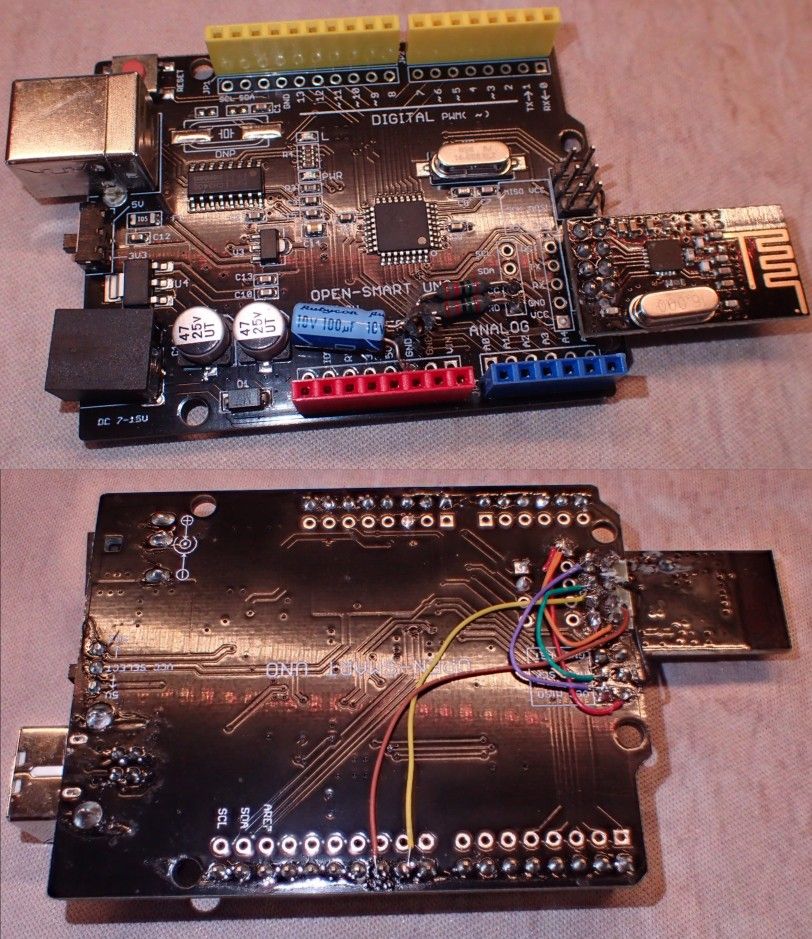A more convenient Arduino Uno
-
I ran across this Keyestudio Arduino Uno which has a convenient feature: you can easily switch it from 5v mode to 3.3v mode. When working with radios, most of which take 3.3v, it turns out that's a very nice convenience. Just saying.The price is what it is, but it's the same price in the Keyestudio store on aliexpress.If anyone knows of a cheaper, equivalent board, that runs at 3.3v (with or without a switch) please post. I tend to use 3.3v pro mini's, but I don't believe they can handle quite as much power, and obviously the form factor is different. Connecting to a pro mini with either an FTDI or CP2102 is yet another hassle. -
Well, scratch all that. It apparently can supply only 50ma at 3.3v. Disappointing!
I suppose the way to do it would be to find a 3.3v LDO with decent current capability and the same footprint as the standard 5v LDO (and good heat dissipation!), and then do a swap on a generic board by desoldering the 5v LDO and soldering in the 3.3v LDO. And it would be cheaper as well.
Also, I do wonder if it handled switching from 16Mhz to 8Mhz when switching from 5v to 3.3v? Or does it run at 8Mhz regardless?
-
It says that it has a 16MHz oscillator, so it's most likely running at 16MHz either way. Definitely not in spec, but with a cheap clone like this, not surprising. Most people who buy it wouldn't be able to track down a weird bug that happens once in a while back to it running out of spec. Likely it will work okay on a bench, but I wouldn't put anything critical on it.
I wonder if it's a real Atmega328 on it, or some clone? No telling these days what you're gonna get.
-
I also have a few of such Arduino Unos with a 3.3V selection switch from the shop "Open Smart" on Aliexpress.
See picture at: https://michiel.vanderwulp.be/domotica/Modules/ArduinoUno/#open-smart-3-3v-5v-switchable-uno-specification-1
They work fine, also on 3.3V.But indeed, running it at 16MHz on 3.3V is out of spec...
-
I even managed to solder a nRF24L01+ to the board so everything works on 3.3Volt, and this node works fine.
This took a lot of scratching copper from the board...
